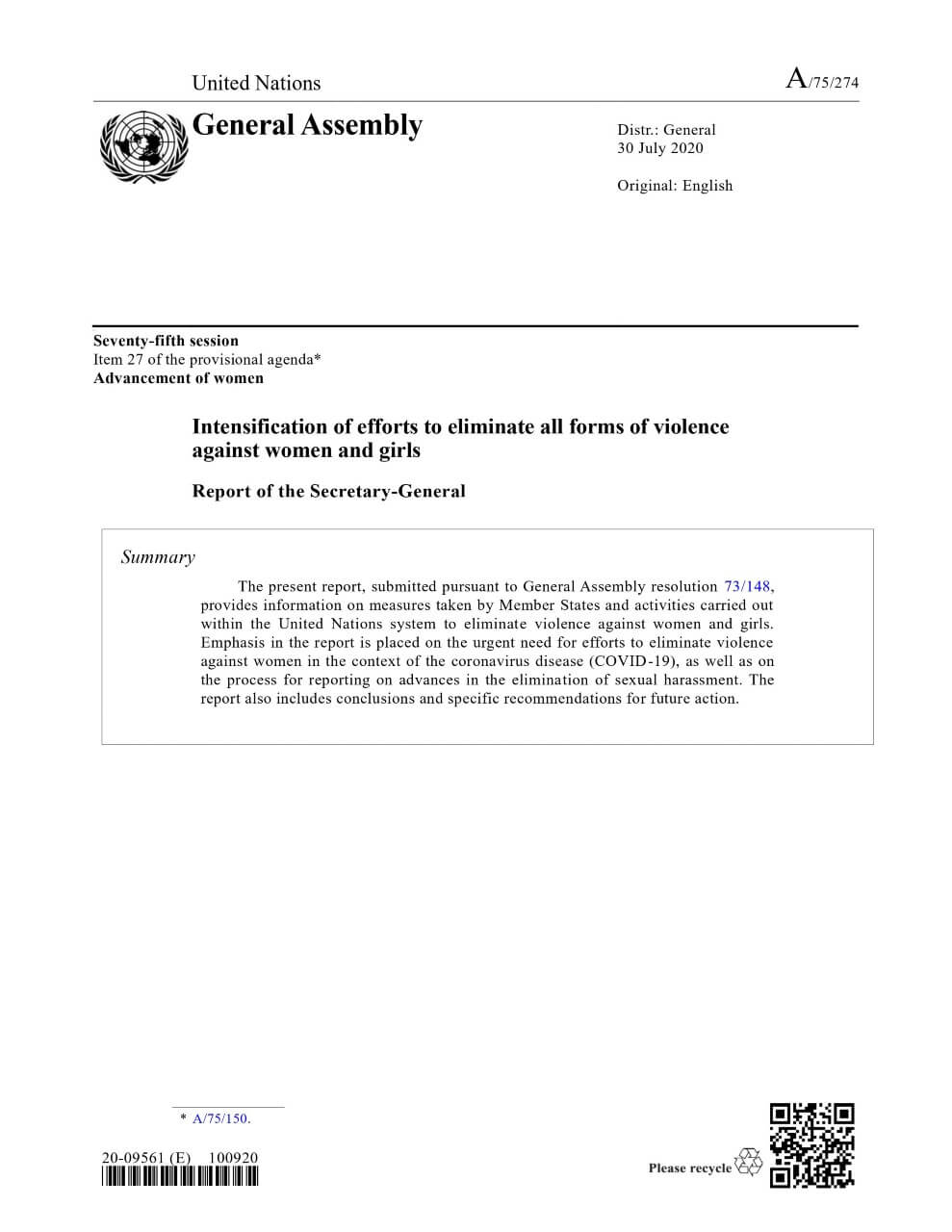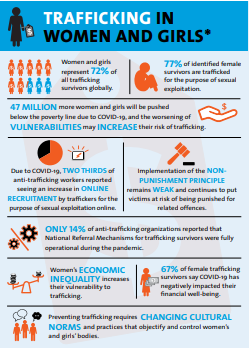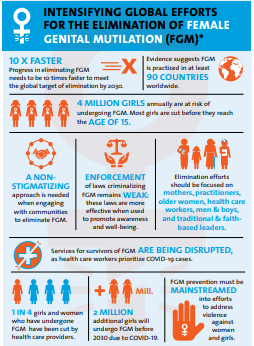Remarks by UN Women Deputy Executive Director Asa Regner at the Third Committee of the UN General Assembly, 75th session
Date:
[Check against delivery]
Your Excellency Ambassador Katalin Bogyay, Chair of the Third Committee,
Members of the Bureau,
Distinguished delegates,
United Nations colleagues,
Ladies and gentlemen,
Much has changed since UN Women last addressed this Committee in October 2019. The COVID-19 pandemic has upended the lives of all nations and peoples. Women and girls everywhere are disproportionately affected and bear the brunt of the massive health, social and economic impact of the pandemic.
Women employed in the informal economy are first to lose their jobs. Women nurses and carers are on the front lines of the response to the pandemic. And women are suffering a shadow pandemic of gender-based violence during COVID-19.
As the Secretary-General warned on 1 October, “Unless we act now, COVID-19 could wipe out a generation of fragile progress towards gender equality. “
UN Women is responding to these challenges in a vigorous manner, together with our colleagues in the UN system. We have launched, with UNDP, the Global Covid-19 Gender Response Tracker, to assess how gender-sensitive the response has been so far. The tracker includes 992 measures across 164 countries that are ‘gender-sensitive’ (measures addressing violence against women and girls, support unpaid care or strengthen women’s economic security). Some 71 per cent of all gender-sensitive measures (704 measures across 135 countries) focus on preventing and/or responding to violence against women and girls. This is a heartening response to the UN Secretary General’s call to action for “Peace in the homes”.
UN Women played a key role to ensure that gender equality was placed in the center of the UN’s global socio-economic response framework, which guides the response of the United Nations to covid-19 at country level.
Moving toward a gender-transformative recovery
The high-level meeting of the General Assembly on Beijing+25 on 1 October was a rallying call to action. All actors need to seize the opportunity for building back better, transform structures of inequality and discrimination and put us firmly on a path towards substantive equality.
Let us stop the pushback against women’s rights and gender equality. Let us keep the promises made and enshrined in the Platform for Action, in the CEDAW Convention, in Security Council resolution 1325.
UN Women’s Generation Equality Forum, co-chaired by France and Mexico, with the leadership and partnership of civil society in 2021 will help further ignite urgent action and accountability for gender equality.
Secretary-General’s reports on ending all forms of violence against women and girls, female genital mutilation and trafficking
Chair, while COVID-19 has disproportionately affected women in all areas of their lives, the impact of COVID-related social isolation and restrictions on movement, coupled with economic insecurity and lost livelihoods, have significantly increased women and girls’ vulnerability to violence, especially in the home. Many women have been unable to report violence, while the pandemic revealed the chronic structural weaknesses of our systems to address the needs of survivors. The pandemic has also highlighted the precariousness of women’s economic situation, with some women unable to challenge, or leave, an abusive partner. Evidence shows that enabling women to have access to, and control over, secure and long-term income is crucial to preventing violence.
The three reports that have been prepared for this session on behalf of the Secretary-General: on efforts to eliminate all forms of violence against women and girls, female genital mutilation, and trafficking in women and girls, examine the impact of COVID-19 on violence against women and underscore the need for urgent action to safeguard progress, address impunity, as well as the needs of survivors.
This year’s Secretary-General’s report on intensification of efforts to eliminate all forms of violence against women and girls (A/75/274) notes that, in the five years prior to the COVID-19 pandemic, over 80 per cent of States reported that they had taken action to reform and implement laws on violence against women, and 87 per cent of States reported that they had introduced or strengthened services for survivors of violence.
This decisive action has continued during the pandemic, where States have been providing much-needed emergency health care, psycho-social and legal support; preventing violence against women and girls through awareness-raising and social protection measures; collecting data to improve services and inform policies, funding women’s rights organizations and integrating ending violence against women actions into COVID-19 response and recovery plans. These responses have been innovative, through adapting services, using safe technologies and strengthening multi-sectoral partnerships.
However, the COVID-19 pandemic is a very real threat to progress made towards the elimination of all forms of violence against women and girls, including SDG targets on elimination of trafficking and female genital mutilation. The Secretary-General’s report on trafficking in women and girls (A/75/289) notes that 47 million more women and girls will be pushed below the poverty line as a result of the COVID-19 crisis and this greater vulnerability may increase their risk of trafficking. Similarly, in his report on intensifying global efforts for the elimination of female genital mutilation (A/75/279), the Secretary-General notes that the impact of social isolation may lead to an increase in FGM. He also notes that progress in eliminating female genital mutilation now needs to be 10 times faster, in order to meet the global target of elimination by 2030.
Investment in long-term prevention measures, to address the root causes of violence against women and girls, including sexual exploitation, and harmful practices are key to eliminating this violence. It is critical that prevention strategies are not put on hold during the COVID-19 pandemic but adapted to the current context.
We all expected Beijing+25 to help us celebrate our gains, and strengthen networks, solidarity and partnerships for the work ahead. We cannot waver. Your leadership and action are needed, now more than ever.
I thank you.


